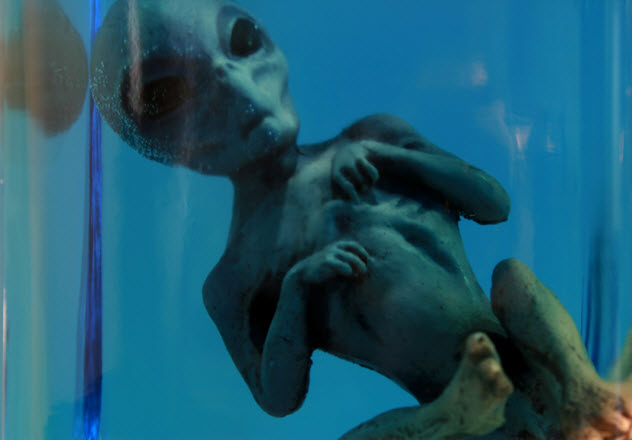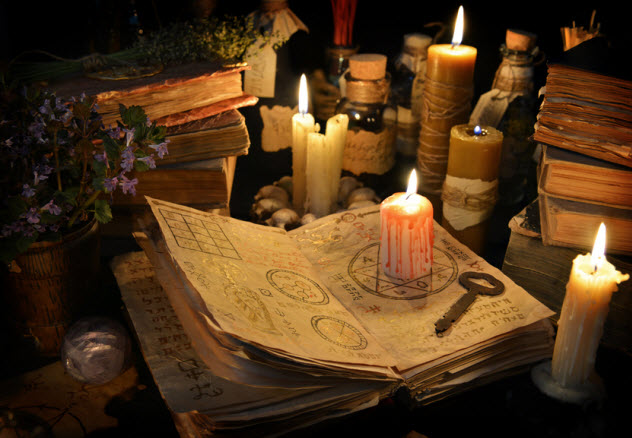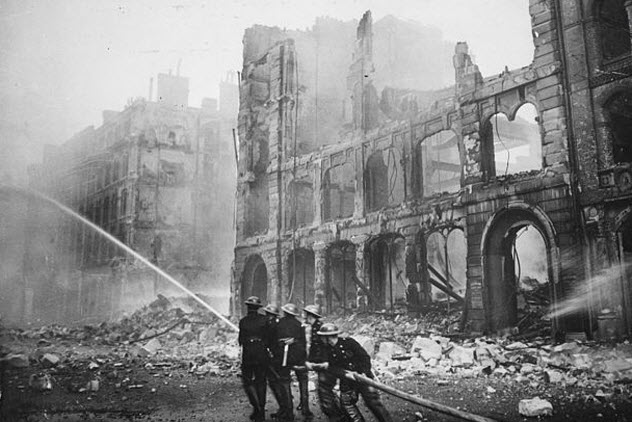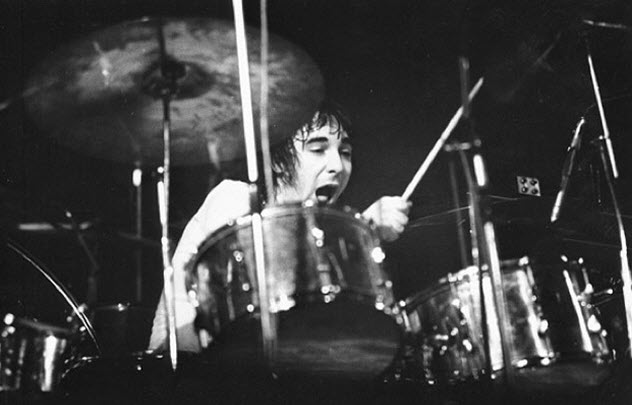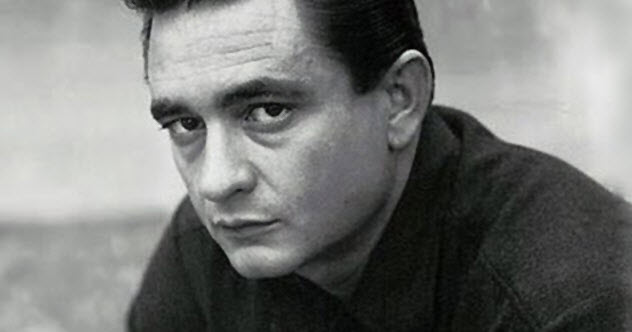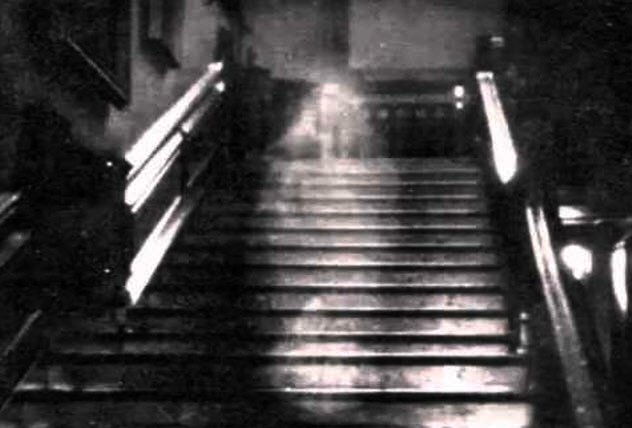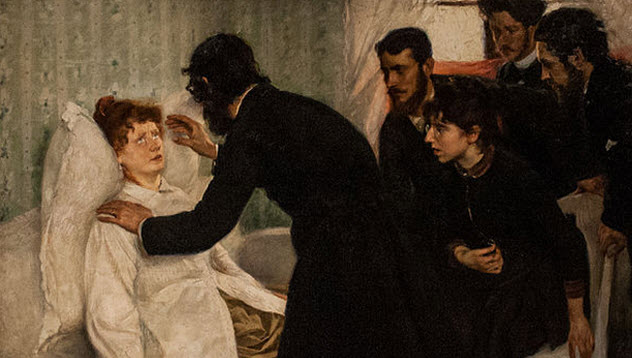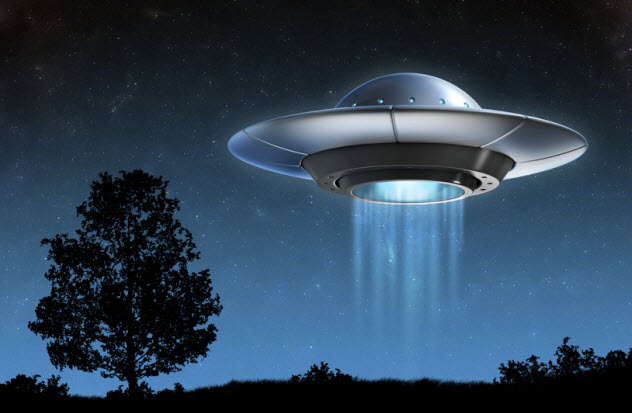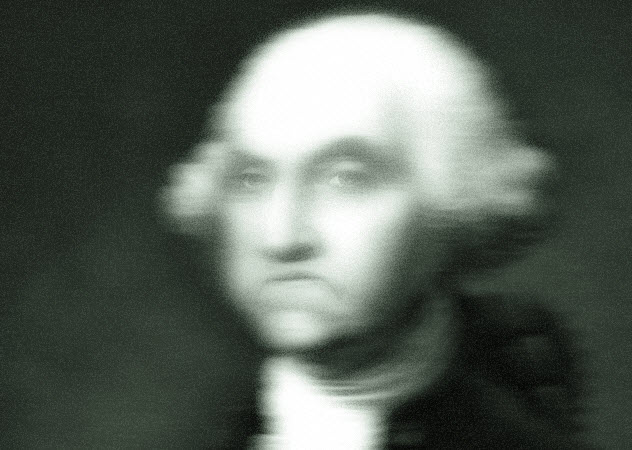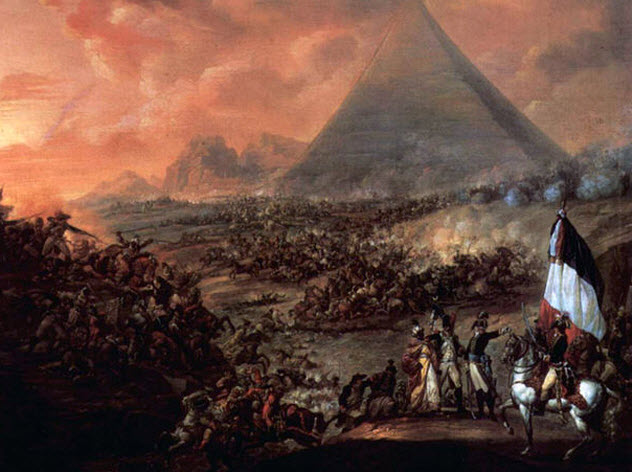10 Jackie Gleason Claimed That Richard Nixon Showed Him Alien Corpses
In 1973, famed veteran comic Jackie Gleason claimed to have had a most unusual and exasperating experience. According to his second wife, Beverly, Gleason told her of a top secret tour by Richard Nixon where Gleason was shown corpses of extraterrestrials. Gleason, who owned an estate in Florida near the Nixon vacation home, was one of Nixon’s golfing partners. They had become close, apparently close enough for Nixon to divulge top secrets to Gleason. Gleason, who had achieved fame from his role in the The Honeymooners, was extremely interested in the paranormal and the unexplained. According to Beverly, he was taken to the Homestead Air Force Base where Nixon showed aliens to Gleason. These aliens were described by him as 0.60 meters (2 ft) long with large skulls and elongated ears. After he was done, Gleason returned to his wife in a panic. He told his story to her but made her swear to secrecy because it could possibly damage his reputation. She claimed that he was “haggard” and noticeably disturbed. They divorced later. Beverly wrote about the incident in an unpublished memoir and had no qualms about recounting it. However, Jackie Gleason was quiet about his paranormal interests and never divulged the UFO story during his lifetime.
9 Sylvia Plath Received Her Talent From ‘Black Magic’
Sylvia Plath was a talented but tragic individual who lived most of her life with crushing depression. She wrote some of the 20th century’s finest poetry along with her novel The Bell Jar. In 1963, her life was cut short when she killed herself by sticking her head in a gas oven. She was only 30 years old when this occurred. To many, this would be nothing more than an open-and-shut case of an intelligent but disturbed individual committing suicide. But according to Al Alvarez—a poetry editor and friend of Plath and her husband, writer Ted Hughes—dark forces were amiss. Alvarez claimed that while Plath was always talented, it took dark rituals by Ted Hughes to unlock her talents. This also caused Plath considerable mental anguish, which ultimately led to her suicide. Plath was a typical, educated, middle-class American who would have had a hard time believing in occultism. But Ted Hughes apparently felt differently, claiming that they had used Ouija boards and read astrology together. Alvarez claims that Hughes hypnotized Plath to aid with the birth of their first child. Using “recovered memories,” Hughes unlocked Plath’s talent for poetry and her inner demons, which ultimately drove her to suicide. As incredible as it sounds, Alvarez’s claims may not be far from the truth. A psychological profile that assessed Plath’s mental state revealed a longtime interest in the paranormal. Upon entering Hughes’s family home for the first time, Plath claimed to have felt “feelings of jealousy and forces of witchcraft and black magic.” Ted Hughes, a believer in Celtic mythology, wanted to equal William Butler Yeats (another prominent literary figure who was interested in the occult) in spiritual prowess. Ultimately, it was most likely not paranormal forces that unlocked Plath’s talents or caused her mental anguish but a lifetime of depression and stress.
8 Winston Churchill Was Saved By Frequent Premonitions
Winston Churchill was one of the leading figures of the 20th century. His role in World War II made him an icon in world history along with his achievements in literature, which eventually merited him a Nobel Prize. Certainly one of the most recognizable men in the world, Churchill was the target of numerous attacks. But on the few occasions when these attacks occurred near him, Churchill somehow managed to dodge them. During the bombing of London, Churchill was having dinner at 10 Downing Street, the official residence of the prime minister. Despite the doom outside, Churchill continued to eat. But suddenly, he stopped for no apparent reason and went into the kitchen where the servants were working. He proceeded to order them into the bomb shelter in the basement and to put the meal on a hot plate. They did as they were told, and Churchill returned to the dining room. Moments later, a bomb was dropped, which destroyed the kitchen entirely. Another time, Churchill was inspecting antiaircraft guns before a night attack. After he was finished, he went to his car where his door had already been opened. For whatever reason, he avoided the open door and entered through the opposite door. While the car was going through the streets, a bomb was dropped which would have caused the car to careen over if Churchill had been on his assigned side. But because of his foresight, the car went on safely. Later, when asked why he had done that, he responded that something within him said “stop” before entering through the open door. Was it premonitions that saved Churchill on these occasions, or was it just coincidence? Unfortunately, we will never know.
7 Keith Moon May Have Been Possessed By Demons
Keith Moon was one of the most chaotic and self-destructive musicians of his time. A noted alcoholic, drug user, and all-around hell-raiser, Moon partied his way to death in 1978. Why did he allow himself to die from his own debauchery? According to one influential doctor, Moon was possessed by demons that drove him to commit acts of destruction and insanity. In 1976, Moon’s hijinks were creating considerable friction between him and the other members of The Who, so they forced him to seek help from Scottish doctor Meg Patterson. She had helped Eric Clapton to quit heroin, so The Who figured if anyone could help Moon, it was Patterson. When Moon met with Patterson, they began to discuss his addictions and behavior. According to her, it wasn’t medical treatment that he needed but divine intervention. She feared that Moon had unwittingly become possessed by a demon. According to Moon, the demon was actually two entities: Mr. and Mrs. Singh. They determined that Moon’s heavy drug and alcohol abuse had allowed the spirits to invade his soul. He had first invited them in with his drumming, and then they began to take over his personality, creating two different entities. On the one hand, Moon was the same person he had always been, but on the other, he was a drunken, destructive wastrel with a more violent personality and numerous addictions. Ultimately, no help could save Moon as he died in 1978 of drug-related causes. Whether he was possessed or not is an unanswerable question, but we can all agree on one thing: Keith Moon was one of a kind.
6 Johnny Cash Believed That God Had Saved Him From Certain Doom
Johnny Cash became one of the most famous country music stars in America and quite possibly the world. Known as “The Man in Black,” he changed the face of music and became a voice to which everyone could relate. However, Cash fought much adversity to become the icon that he did, and at one time, he thought that his life was not worth living. He even claimed that he would be dead if it were not for the hand of God. In 1967, Johnny Cash left his home in Hendersonville, Tennessee, and drove to a cave he knew of in Chattanooga called Nickajack Cave. For several years, Cash had been abusing drugs and alcohol, causing his career to fall apart. Planning to die in the cave, he crawled inside to its deepest parts. Just as he was about to give up, something happened: “I felt something very powerful; a sensation of utter peace, clarity, and sobriety. I couldn’t understand it,” he later recalled. Soon after, Cash began to receive guidance through the “darkness of the cave.” Eventually, he managed to not only escape but to live on for several decades and achieve further success. Later, a dam was built which flooded Nickajack Cave so that it could no longer be accessed. What happened in Nickajack Cave? Although Cash continued to fluctuate between sobriety and addiction, he never changed his story about feeling something seemingly impossible.
5 England’s Royals Have Witnessed Frequent Hauntings
England’s royals spend much of their time in century-old homes, so it is only natural that they might witness something unusual. Whether or not you believe in ghosts, many English royals have claimed to have had supernatural experiences. Of course, most would say that it is the result of pure coincidence, but these royals beg to differ. And it’s not just recent members. Over several generations, different royals have made fantastic claims. Raynham Hall in Norfolk was home to Lord Charles Townshend, whose wife was Lady Dorothy Walpole Townshend, sister of Sir Robert Walpole, England’s first prime minister. In 1712, Lady Townshend tragically died. Her spirit, though, remains. She is known as the “Brown Lady of Raynham Hall” and has spooked many monarchs. George IV, who visited in the early 1800s, was awakened by the Brown Lady during his visit. He was so frightened that he vowed never to return. More recently, Queen Elizabeth II was alleged to have felt a haunting presence when her dogs began to bark madly at what appeared to be nothing. The Queen’s Apartments in Kensington Palace are another supposed hot spot for spirits. In the nursery that Prince George is currently occupying, several iconic royals have died. In 1694, Queen Mary II died there. In 1760, George II died while staring out the window. In 1821, Charlotte of Brunswick, wife of George IV, also died there. These deaths are only the tip of the iceberg when it comes to royal deaths. Princess Margaret’s own secretary witnessed an apparition appear before her, which she described as a woman in Regency dress who appeared and quickly vanished into the walls. In the future, will George claim to have seen ghosts in the room? We can only sit and wait.
4 Charles Dickens Claimed To Have The Power Of Mesmerism
Charles Dickens is one of the most famous writers in history, and during his lifetime, he seemingly remained skeptical and levelheaded. During the Victorian era in which he lived, many were fascinated by spiritualism, which was the alleged practice of summoning the dead. Dickens was a critic of the practice and often confronted it, but another paranormal practice during the era seems to have made an impression on him. Mesmerism, essentially the “mind over matter” of its day, was the practice of hypnotizing and subsequently “healing” individuals of ailments. Apparently, Dickens was a huge proponent and practitioner of mesmerism and reached his peak in 1845 when he traveled to Italy and met Augusta de la Rue. She was the wife of a banker who suffered from insomnia, headaches, and other unpleasant conditions. Dickens used this opportunity to experiment with his “powers.” He kept extensive notes about these “experiments,” and they show bizarre exchanges between Dickens’s and his subject. Sadly, Dickens’s notes seem to show that he did all this for his own satisfaction and not for any altruistic purposes. Ultimately, while mesmerism never went anywhere in society, it has become a footnote in pseudoscience.
3 Comedian Dan Aykroyd Saw UFOs And Was Visited By Men In Black
Dan Aykroyd is most famous for his roles in Saturday Night Live, Ghostbusters, and The Blues Brothers. For older readers, the name instantly rings a bell, mainly because of his popular comedy. However, he also claimed to have had some bizarre experiences throughout his life. His interests often lay in the paranormal, and after several unexplainable sightings and extensive research, he became a conclusive believer in UFOs and alien visitation. He first became interested in the possibility of UFOs after seeing a 1952 photograph of strange lights above the US Capitol Building in Life magazine. Since then, he has been mostly open about his interests and even made a documentary in 2005 called Dan Aykroyd Unplugged on UFOs. Beyond studying UFOs, Aykroyd has claimed to have seen them. In an interview with the UFO site OpenMinds.tv, he claimed to have had four sightings, including one experience that was quite vivid. While living in upstate New York in the mid-1980s, he said that he woke up in the middle of the night and said to his wife, “They are calling me, I want to go outside.” When she asked him who was calling to him, he responded that “something” was urging him. The next morning, the news was reporting that others in upstate New York, Quebec, and Vermont had claimed to have similar experiences. Aykroyd also said that he had been contacted by the mysterious “Men in Black.” While on the phone with Britney Spears about her upcoming appearance on Saturday Night Live, he noticed two men dressed in black standing by his car. He looked away briefly, and when he looked back, they had vanished. Later, the producers of a UFO program in which he was involved informed him that they had been ordered to cancel the show under mysterious circumstances.
2 George Washington Doesn’t Want To Leave Mount Vernon
George Washington is the most famous of America’s founding fathers. The first president, the general of the Revolutionary Army, and one of the leading figures of his time, he is forever etched into history. Interestingly, his estate, Mount Vernon, remains almost exactly as it was during his lifetime. However, after his death in 1799, he apparently never left. Josiah Quincy III was a prominent Massachusetts politician who served as mayor of Boston, a member of Congress, and president of Harvard University. In 1806, he went to Mount Vernon to meet with Bushrod Washington, George Washington’s nephew who had inherited the estate and later became an associate justice of the US Supreme Court. As told by Quincy’s son, the story was that Josiah Quincy III was given Washington’s own bedroom to sleep in and saw Washington’s ghost that night. Strangely, this was all that Quincy said and he never divulged any other details about what had occurred. However, he did give a possible explanation as to why Washington would be unhappy in death. Prior to his ghostly experience, Quincy had been shown Washington’s tomb and described it this way: “[The] velvet cover of the coffin was hanging in tatters, it having been brought to this condition by the assaults of relic hunters.” He believed that the disrespect shown to Washington had caused his spirit to be put into a state of unrest. James Rees, who had worked at Mount Vernon since 1983 and became executive director of the estate in 1994, corroborated tales of mysterious encounters at the home in an 2002 interview with The Washington Post: Several of our guides swear that they have seen ghostly images in Washington’s mansion. On a few occasions, furniture seems to have moved mysteriously in the locked and secured home. We know this because the furniture comes into contact with our “electric eye,” causing a false security alarm.
1 Napoleon’s Little Red Man Of Destiny
The Little Red Man is a popular legend throughout French history. His first appearance was after the construction of Tuileries Palace where he frightened Catherine de’ Medici by appearing out of and disappearing into the walls. Later, in 1610, he appeared to Louis XIV, a child at the time, and informed him of the assassination of Henry IV that very day. Supposedly, the Little Red Man also appeared to Marie Antoinette’s servants on the eve of the French Revolution and then to Napoleon, whom he appeared to as a sort of omen. The Little Red Man appeared to Napoleon at the Battle of the Pyramids, where he was described as a sort of genie. They made a 10-year pact in which he would guide Napoleon to victory if, in return, Napoleon would usher in the Brotherhood of Man. However, if Napoleon failed to do so, the Little Red Man would give Napoleon three warnings before abandoning him to his enemies. The Little Red Man also appeared at Napoleon’s coronation in 1804, in Moscow in 1812, and at Fontainebleau in 1814. According to some legends, the Little Red Man told Napoleon not to invade Russia (the invasion was a notorious failure) and later warned Napoleon at his final defeat at Waterloo. Of course, there is a possible explanation for the Little Red Man. The famous psychologist Carl Jung was said to have been visited by an apparition called the Philemon during times of great stress. Conversely, it is known that many individuals under similar stress and burden will create apparitions to deal with their issues and it is possible that Napoleon did this, too. Coming from the superstitious culture of Corsica, he may have taken the legend of the Little Red Man to the extreme and saw him while going through the stress of his most burdensome times. Gordon Gora is a struggling author who is desperately trying to make it. He is working on several projects, but until he finishes one, he will write for Listverse for his bread and butter. You can email him here.
